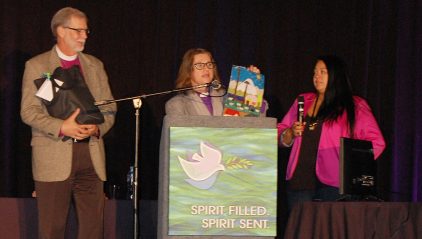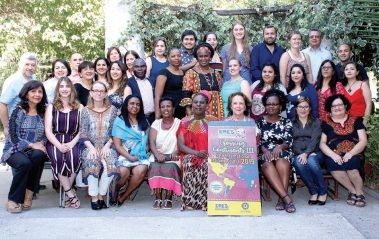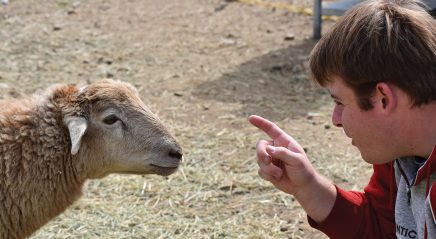As the world sheltered in place this past spring due to COVID-19, so did Maria (Maggie) Carrasco Mella. But, after three months of isolating at her home in Santiago, Chile, and unable to go to work or see her friends, she would start each day in tears.
Carrasco Mella is a part-time caregiver for seniors and a health promoter for Educación Popular en Salud (EPES), a Chilean organization supported by ELCA World Hunger. EPES trains students, public officials, health and education workers, and women from vulnerable communities to advocate for the rights to health care and sustainable food, and to share their knowledge through workshops and community events.
Carrasco Mella has done this work since 1985, but when she learned that EPES wanted to run an online gardening workshop in response to COVID-19, she found the idea a bit laughable. After all, her neighborhood, El Bosque, has few green spaces and her house doesn’t have much of a yard. She didn’t think her land had much potential for growing food.
Then something clicked. Even though she had never planted a vegetable garden, Carrasco Mella remembered her childhood in southern Chile, where her father was a tenant farmer. Nearly all the potatoes he produced went to the landowner, and her mother grew subsistence crops to feed their family of 11. Later, the family moved to the urban hub of Santiago and stopped growing food.
Community relationships
EPES was founded in 1982 by Karen Anderson, an ELCA missionary in Chile, as a program of the Evangelical Lutheran Church in Chile, and it still has close ties to the church. Through community events, its health promoters share information on topics such as nutrition, breast cancer prevention, HIV and AIDS, and violence against women. This ongoing work creates a base of community relationships to respond when other crises arrive, such as COVID-19.
At a time of rising unemployment and increasing challenges in accessing food, the online workshops gave participants the education needed to start their own home gardens and increase their access to healthy food. They learned how to improve their soil quality and reduce waste by composting, work with the natural light and space they had, bake sourdough bread and more.
The experience also gave Carrasco Mella and others a way to network and connect during a time of isolation.
Just two months after these workshops, arugula, chard and spinach were growing along the 6-foot walkway to the front door of Carrasco Mella’s house, giving her fresh, nutrient-dense vegetables. And her small but thriving vegetable plot brought back cherished memories of her childhood and her mother’s garden.
“I was unaware that lessons learned from my parents remain deep inside me. It’s been an immensely enriching experience to discover they were still there and that they serve me well now.”
“I have come full circle, back to my roots,” she said. “I was unaware that lessons learned from my parents remain deep inside me. It’s been an immensely enriching experience to discover they were still there and that they serve me well now.”
EPES is working to change the food system in Chile, where, as in many other countries, people experiencing poverty can be especially vulnerable to illnesses caused or worsened by poor nutrition, and healthy food can be expensive and difficult to access. Unequal access to nutritious food has become even more visible this year.
As lockdowns keep people at home, cultivating gardens becomes an act of resistance that grants people greater autonomy and assures families access to fresh produce. Home and community vegetable gardens also strengthen the community’s role in local food production.
In response to COVID-19, EPES has expanded its ongoing work through ELCA World Hunger with extra support from Lutheran Disaster Response. This work includes providing the special online workshops along with food, face masks and mental health information to families in vulnerable situations.
“By participating in an organization, you can achieve a lot,” Carrasco Mella said. “People know us and trust us; we are a credible organization. And I learned to value myself as a person, as a woman.”
This article was compiled by Alex Baird, communications manager, ELCA World Hunger and disaster response, from the EPES Stories of Hope newsletter and a testimony from Maria Carrasco Mella.









